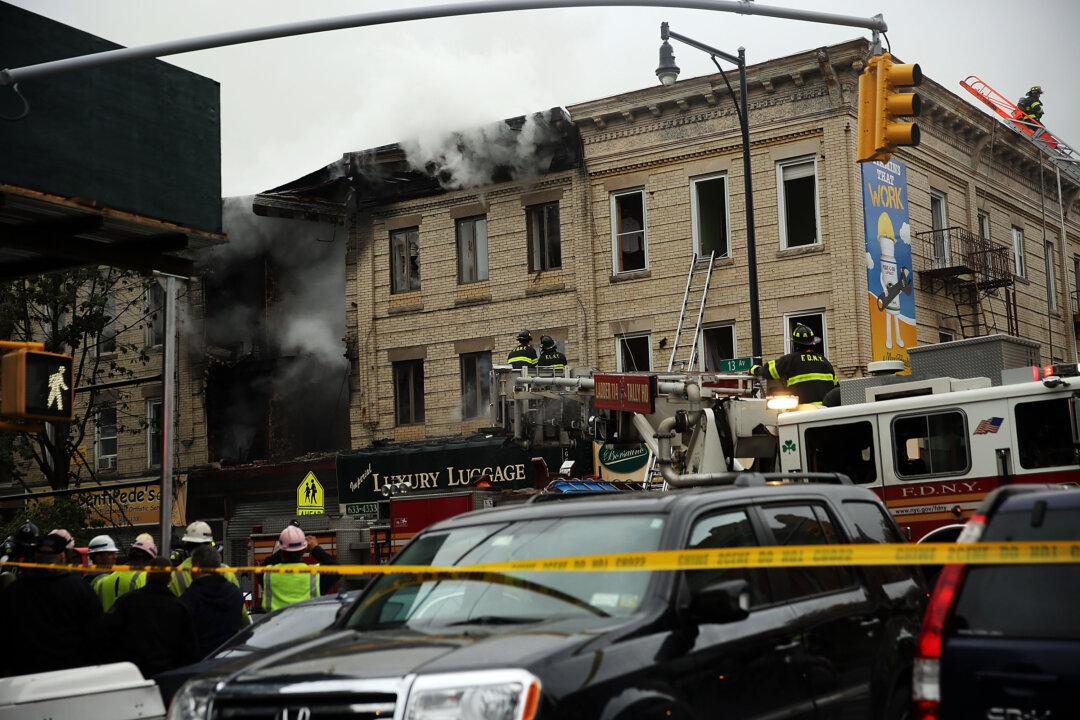NEW YORK—On the quiet Saturday of Oct. 3, a tenant in Brooklyn disconnected a gas pipe so she could remove a luxury stove. An explosion ensued, demolishing the building’s facade and collapsing its framework.
The blast displaced 49 residents, injured 13, and killed 2.
The Fire Department of New York (FDNY) said the tenant who allegedly caused the explosion was moving. The tenant had personally purchased the luxury stove and wished to bring it to her next apartment.
Although this particular explosion in Brooklyn was not caused by a corroding gas pipe, it’s a stark reminder of how easily an explosion could occur if the slightest bit of electricity drifted in the air and mixed with a room full of gas.
In a city that is heated by 6,362 miles of aging natural gas pipes, residents should be aware that seemingly innocuous actions—such as using a home phone or cellphone—could ignite an explosion if gas is in the air.
According to the websites of energy companies, one should leave the premises immediately if one smells gas and call 911 only after leaving the building.
If there is a gas leak, even ringing the doorbell can cause can an explosion. So could starting a hair dryer, or turning on the lights.




